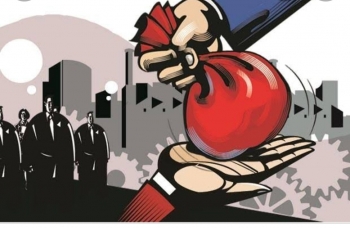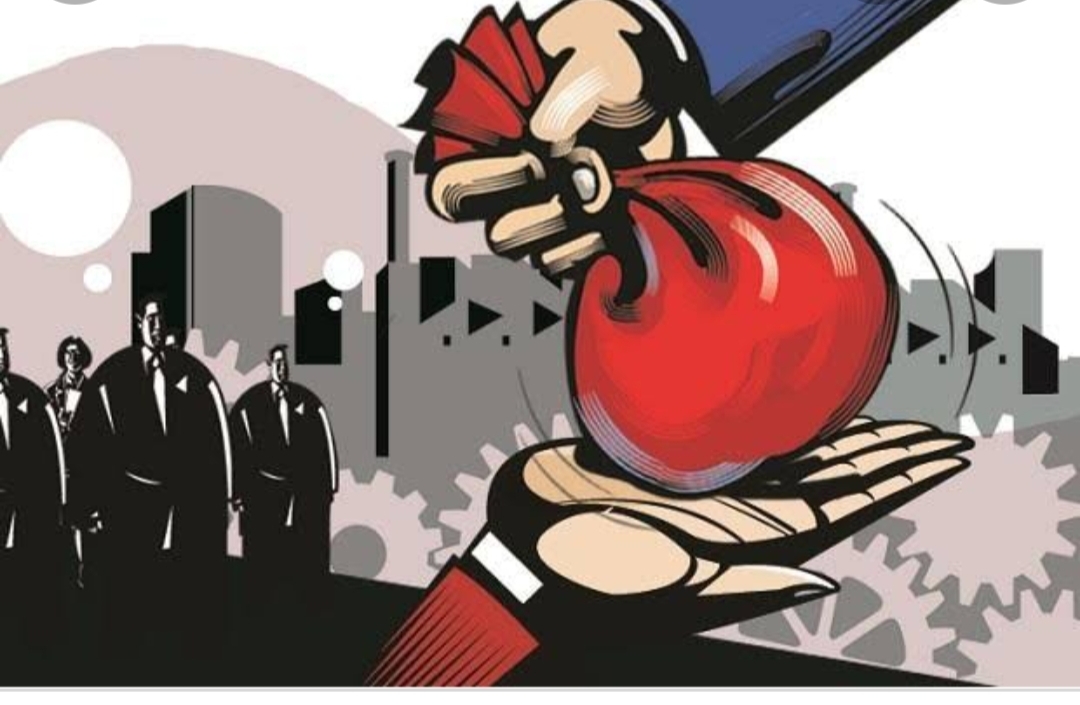
.jpg) Jose Vattakuzhy
Jose Vattakuzhy

Heated deliberations and debates continue to take place on the terms ‘welfare schemes’ and ‘freebies’ in social, political, and economic circles. Since August 11, discussions on political promises on election time grants, loan cancellation, and government welfare programs have intensified. During the proceedings of PIL against freebies, the Supreme Court remarked on the urgent need of keeping a balance between the economy losing money due to freebies and welfare measures in the country.
The petition has been referred to a three-judge bench of SC for wider view on regulatory tools of welfare schemes and the need to curb economically destructive freebies announced by politicians eyeing votes.
However, political parties are divided on the outlook of spending public money to empower the marginalized and downtrodden people.
As a result, a lot of questions have been raised. Do promises of gifts during the election campaign, including consumer goods like food kits, televisions, cycles, mobiles and laptops, undermine democratic electoral values? What about the different types of government grants, free education, electricity, drinking water, travel costs, and cooking gas? Furthermore, does the cancellation of farmers' loans or even corporate loans affect the national economy?
An internal report of the RBI in 2019 said that Rs 3.12 lakh crore farm loans were written off by central and state governments from 2008 to 2019, apart from cancellation of corporates’ loan. An RTI response by RBI has revealed that Rs 11. 68 lakh crore business loans were written off in the last ten years.
In addition, various social assistance programs related to women & child empowerment, food, skill development, health, etc. of various States and the Centre were also questioned. However, one should not forget that these gifts and social assistance programs would directly or indirectly impact the economic growth of the nation.
In this context, a clear understanding of an effective social protection program or system is essential for politicians as they are key players in governments.
Need for Welfare Systems
The concepts of "welfare state" and "social protection system" are linked to the protection and promotion of the economic and social well-being of the population of a country. The driving force of welfare thought is based on democratic principles of equality of opportunity, equitable distribution of wealth, and public responsibility for those unable to gain themselves the bare minimum prerequisite for decent lives. Thus, the perceptions about the ‘right’ of citizens that come from the State and the ‘responsibility’ of the State to create welfare schemes of minimum standard of living for the people would evolve in a country wherein disparity and poverty exist.
The Constitution tells the obligation of the country to take protective instruments for the well-being of the deprived and marginalized people; Articles 12-35 speak about the fundamental rights of citizens to get a decent life. Inequalities in the society are increasing day by day in different levels. That reflects in income distribution, wealth, education, digitalisation, gender, living conditions, etc. The periodic labour force survey for the years 2017-18, 2018-19, and 2019-20 showed that the top 10 per cent earn more or less equal to the base 64 per cent of the people. Hence, lifting the millions of people at the bottom out of poverty is not a small effort.
The main reason for inequality is that the country must accommodate 16 per cent of the global population in space allowing less than 2.4 per cent of the planet. It states that resources are limited. Thus, to maintain equity as part of the maintenance of social justice, it is necessary to put in place social protection schemes.
More than that, studies have observed that since 1991, the sacrifices of the marginalized sections are not properly taken into consideration. They had to give up land for roads, factories, and dams. For example, nearly 50 lakh people in India were internally displaced in 2021, news agency PTI quoted the annual Global Trends Report by the United Nations High Commission for Refugees (UNHCR) in June 2022. They have become, to a large extent, landless workers and slum dwellers. Consequently, their affinities, culture, and lives were disrupted by so-called development activities. For this reason, many economists argue that development gains have scarcely been treated equally in India. Social protection schemes thus become inevitable initiatives within a country.
In 1980 the World Bank recognized ‘social safety net programs to protect families from the impact of economic shocks, natural disasters, and other crises.’
A disaster of various kinds coming out of nowhere is one of the major reasons for having a safety net or social security programs. It was evident from the time of Covid 19, which was the biggest health emergency in the history, that countries, including India, demanded support to take care of different forms of safety nets like vaccination, medical care, livelihood programs, etc. Official data show that during the pandemic the Government had to provide a relief package of free food grains to 80 crore low-income people.
A strong argument of social economists is that welfare systems are an economic push. Free education and health care are human investments that increase a country's labour productivity.
The United Nations Development Programme (UNDP) agency works in more than 170 countries facilitating the eradication of poverty, reducing inequalities, and building resilience by proposing sustainable policies and initiating welfare schemes for every country. In this regard, UNDP suggests that the welfare schemes, which come from the state, would have a cyclical process starting with the needs of people. It leads to the research base on opinions or views that give options for policies and schemes within the framework of regulations. This cycle ends with an evaluation from which derives the defects of the scheme and recommendations that again lead to generating the needs of people. Accordingly, whatever name is given, an efficient welfare scheme means any initiative framed under any law to provide financial help.
Several researchers, including the National Commission for Enterprises in the Unorganised Sector (NCEUS) on social security and welfare schemes, have established that with the support of beneficiaries’ data, every genuine welfare scheme and subsidy is based on rules and regulations. These types of schemes evolve certain kinds of institutionalization through which benefits will efficiently reach the target group and violation of rules and regulations invites the provision of the suit in the judiciary bodies.
The indispensable components of regulatory instruments are sources of funding; the set-up of good administration with excellent communication and grievance redress systems; a participatory mechanism of beneficiaries, an evaluation structure, and the winding up methods after objectives are served.
By 2030, under the sustainable development agenda of the United Nations and the government, legitimate social protection programs should be linked to indicate specific features. They are clarity in aims and policies behind the welfare program, people’s participation in welfare works, qualified administration in the implementation of the schemes, a mechanism to maintain good relations with the public wherein people’s voice should be considered and administration should recognize themselves as the protector of the system. Schemes would be evaluated to solve the problems and there will be transparency on use of public money.
There is currently no official data on the number of social protection schemes at both central and State levels. However, the 2022 union budget reported some 740 welfare projects under the central government. Generally, a scheme involves its plan, design, or program of action involving many stakeholders who are formulating welfare schemes for the government with the support of rules and regulations either enacted in Parliament or ordinances. In certain cases, social protection systems would be implemented according to the guidelines of the competent ministry.
Anyhow, sustainable welfare schemes should be based on Acts enacted by either Parliament or Assemblies, like the Mahatma Gandhi National Rural Employment Guarantee Act. It is also important to note that time has come to give up those schemes, subsidies, and freebies which are being implemented without sufficient consultations, discussions, and legal bindings. Legalized and institutionalized social welfare schemes are unavoidable if the country has to move towards the third largest economy in the world before this decade ends.
(The writer is the founder Director of Workers India Federation. Email: josevattakuzhy2017@gmail.com)